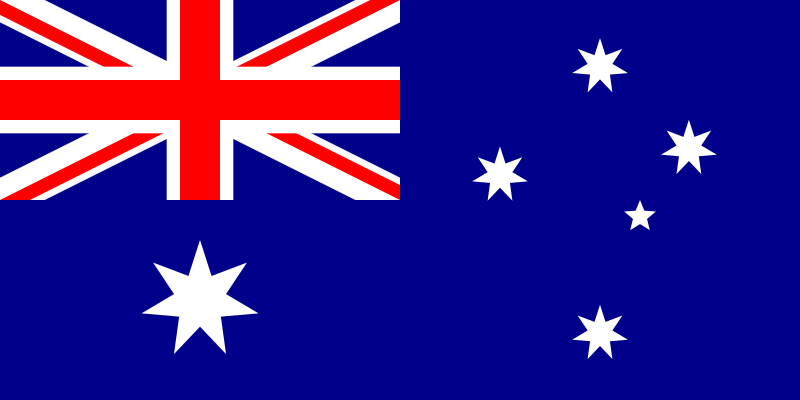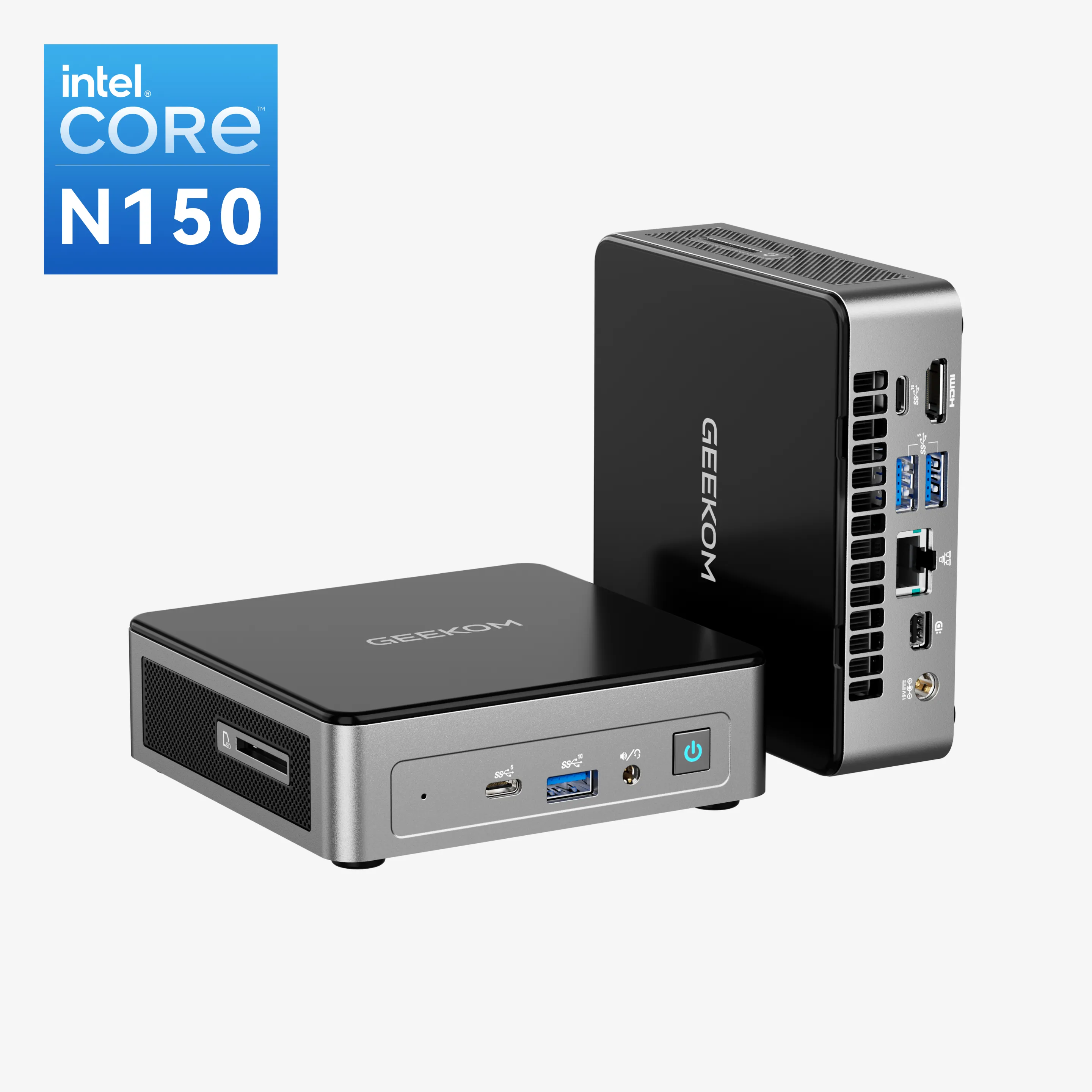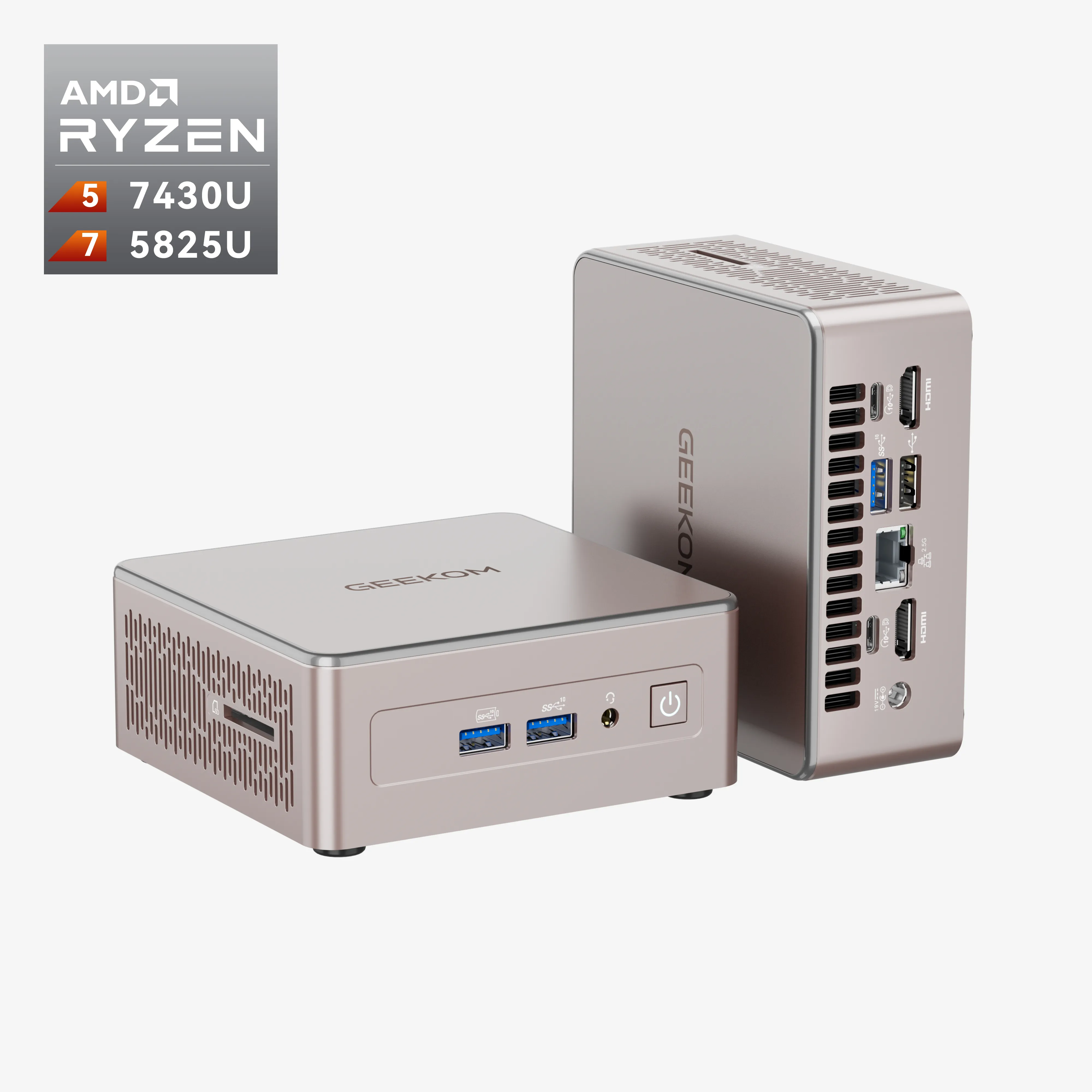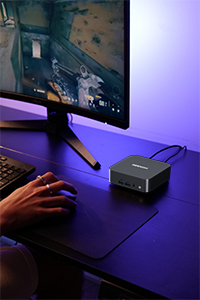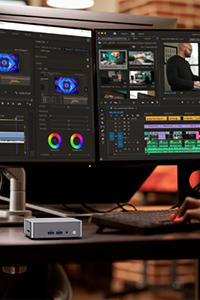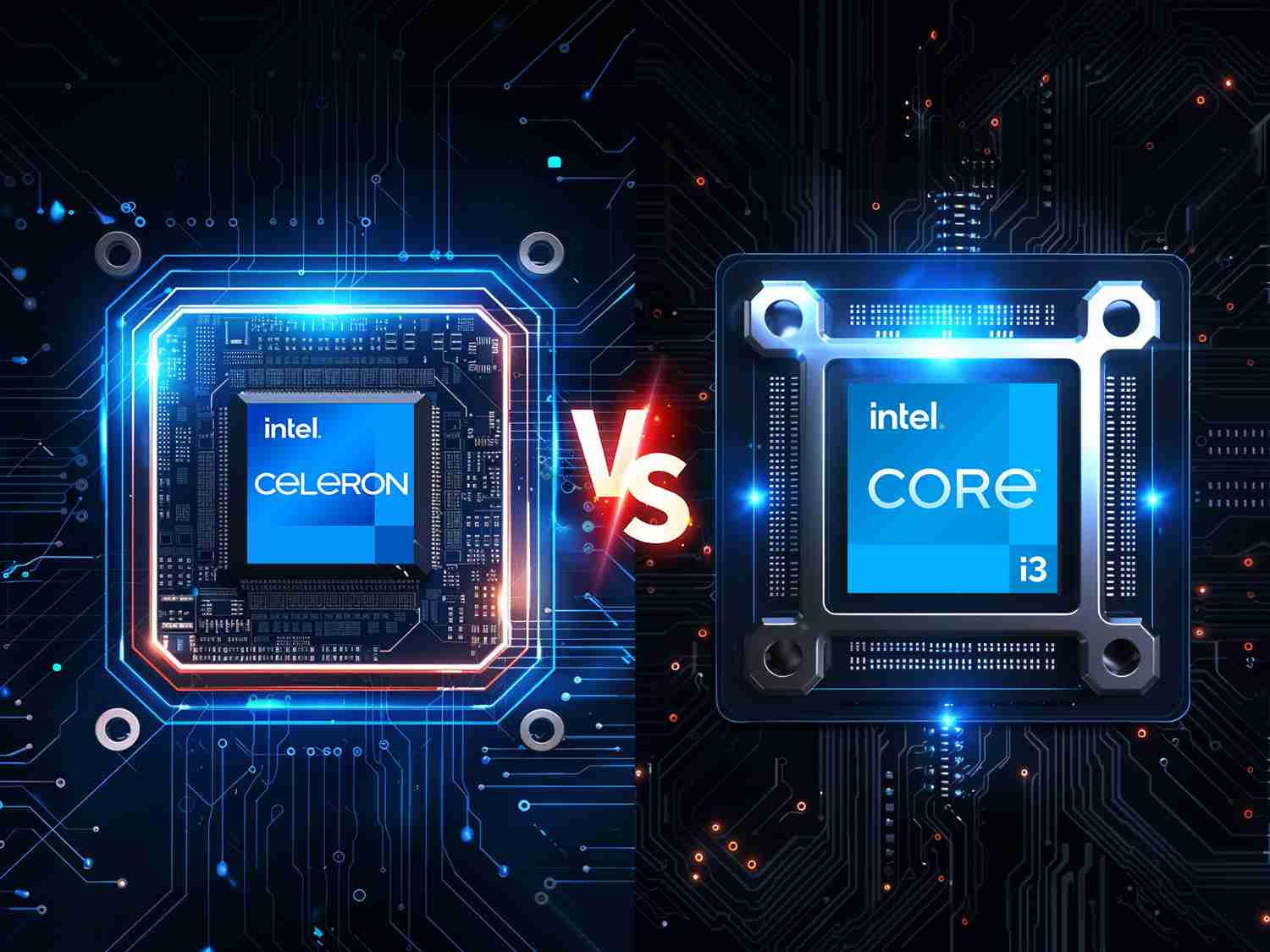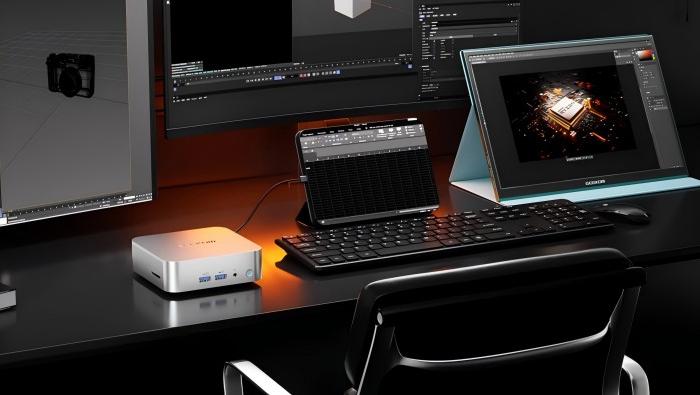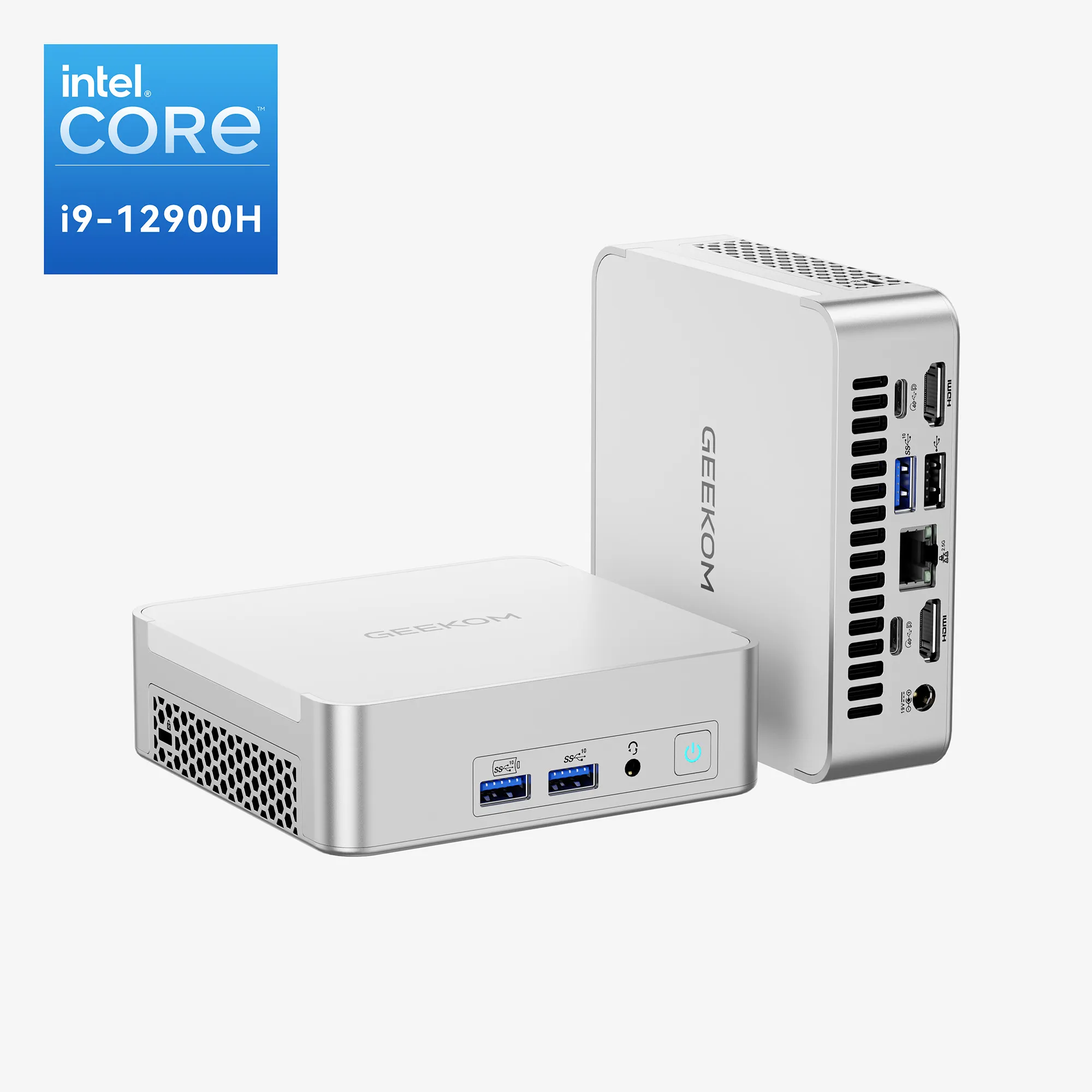You’ve probably seen the Intel Core i3 and Celeron processors while looking for a new computer, but what’s the difference between them?
And which one is right for you? Performance is the most significant difference between these two processors.
In this post, we will compare the Celeron and i3 processors in terms of performance, price, power efficiency, and gaming to help you make a decision.
Performance Comparison: Intel Celeron vs Core i3
Intel Core i3: Balancing Performance and Price
Intel Core I3 is a mid-range computer processor faster than Celeron processors. Core i3 processors are suitable for general-purpose computing, such as browsing the internet, using office applications, and light image editing.
They’re also good for gaming, although not as good as processors in the higher tiers. So, if you’re looking for a processor that can do it all without breaking the bank, an Intel Core i3 is a good choice.
Pros:
-Faster performance than Celeron: Core i3 processors have faster clock speeds and more advanced features than Celeron processors. That makes them better for tasks that require more processing power, such as image editing and video encoding.
It has hyper-threading technology. which allows each core to handle two threads simultaneously, making it more efficient.
Therefore, a quad-core i3 processor can handle eight lines simultaneously. The speed of this processor can go up to four GHz, which is pretty good.
-Good for gaming: Although not as good as processors in the higher tiers(Core i7 or Core i9), Core i3 processors can still offer a good gaming experience. Games that are not as demanding will run smoothly on a Core i3 processor.
That is because the processor can handle the basic computations needed for gaming, such as rendering images and calculating physics, and therefore doesn’t need as much power as processors in the higher tiers.
-More powerful: Core i3 processors have more cache (memory that the processor can access quickly) than Celeron processors.
They also often have higher core counts, which means they can handle more tasks simultaneously.
It is also important to note that some Core i3 processors come with integrated graphics, which can improve your gaming and video-watching experience.
Cons:
-More expensive: Core i3 processors are more costly than Celeron processors. That is because they offer better performance and features.
That makes them a better choice for power users who need the extra processing power for tasks such as video editing and gaming.
-Not as power efficient: Although Core i3 processors are more potent than Celeron processors, they are not as power efficient. That means they will generate more heat and may require a more powerful cooling system. So, if you are looking for a processor that is power efficient, a Celeron processor may be a better choice.
Intel Celeron: Ideal for Budget-Friendly Computing
Intel Celeron is a budget computer processor slower than Core i3 but more power efficient. It is suitable for simple tasks such as web browsing or word processing, but not gaming or other demanding activities. If you are on a tight budget, Celeron is a good choice.
Pros:
-Budget-friendly: When you are on a tight budget, the last thing you want to do is spend a lot of money on a processor. Intel Celeron is one of the more affordable options on the market.
It is also cheaper to replace if it breaks. The processor is also power efficient, so it doesn’t require as much ability to run. That can save you money on your energy bill.
-Good for simple tasks: Celeron will be more than enough if you need a processor for basic tasks like web browsing and word processing.
It can handle these tasks without any problems. These tasks include: sending emails, creating and editing documents, and surfing the web. That is because it was designed for entry-level PCs and laptops.
-Power efficiency: One of the benefits of Intel Celeron is its power efficiency. This means it will not use as much power as some of the other processors on the market.
That is important to save money on your electric bill or be more eco-friendly. You can also run your computer for longer on battery power when you have a power-efficient processor.
-compatibility: When it comes to compatibility, Celeron is one of the best. It is compatible with a wide range of motherboards and operating systems. This means you will not have to worry about whether or not your Celeron processor will work with your computer.
Cons:
-Slower performance: One of the downsides of Intel Celeron is that it is not as fast as some other processors on the market, such as Core i3. That is because it was designed for entry-level PCs and laptops.
The speed can be up to 1.8 GHz, which is not as fast as other options like Intel Core i3; therefore, it can not handle more demanding gaming or video editing tasks.
-Not suitable for gaming: Celeron is not the best choice if you want to use your computer for gaming. That is because it was not designed for demanding tasks like gaming. It can handle basic games, but if you want to play the latest and greatest games, you will need a more powerful processor: Intel Core Ultra 9 vs i9.
Conclusion
– Intel Celeron is a good choice for budget users who need a processor for simple tasks. It is power efficient and compatible with many motherboards and operating systems.
However, it is not as fast as some of the other processors on the market, and it is not good for gaming.
You can save money by choosing Celeron, but you will sacrifice some speed and power. Between Intel Celeron and i3, Intel Core i3 processors are more powerful than Celeron processors and are better for gaming and other demanding tasks.
However, they are more expensive and use more power. Celeron is a good choice if you need a processor for simple tasks and are on a budget.
–Intel Core i3 for productivity: If you need a processor for productivity tasks such as office work or light gaming, Intel Core i3 is a good choice. It is faster than Celeron and can handle more demanding tasks.
Tasks that Core i3 can handle include video editing, photo editing, and gaming. Therefore if you are looking for a processor to do more than browse the web and check email, Core i3 is a better choice.
Looking to purchase a mini PC with the processor of your choice? Visit GEEKOM, a leading provider of mini PCs, to explore a wide range of options.
Whether you need a compact system for everyday tasks or a capable machine for demanding workloads, GEEKOM offers high-quality mini PCs with reliable performance.
Frequently Asked Question
1. How do Intel Celeron and Intel Core i3 processors differ from each other?
Intel Celeron is perfect for cost-conscious users who need a processor for simple tasks, while Intel Core i3 offers higher clock speeds, the efficiency of quad-core processors, and enhanced graphics through its integrated GPU. Additionally, Core i3 processors with hyper-threading provide greater versatility and performance for users with more demanding computing needs.


